Clacton: The place where one in five has never had a job
- Published
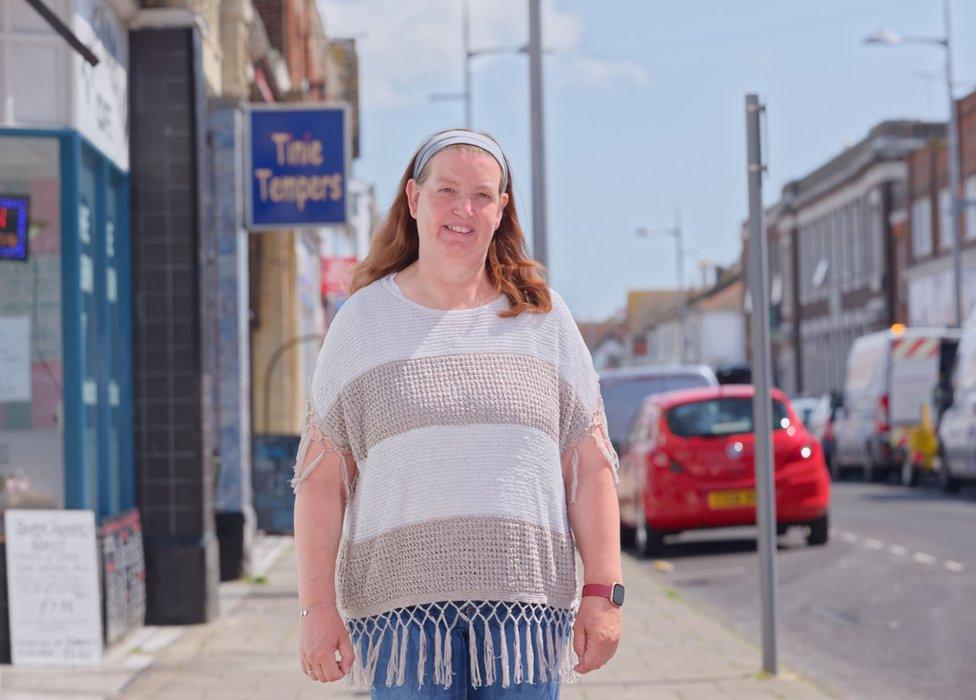
Penny Phillips has recently started her first job in three decades. She lives in the part of the UK with the highest level of economic inactivity
"I never used to go out, I never used to make friends," says Penny Phillips, a 52-year-old mother-of-two who was out of work for three decades.
She lives in the Clacton area of Essex, which has the highest proportion of people classed as "economically inactive" in the UK.
While being unemployed means people are looking for work, "economically inactive" refers to those who are neither employed nor seeking work - whether through long-term illness, retirement or for other reasons.
Nationally, 8.7m people aged between 16 and 64 are classed as economically inactive, external.
Research for the Clacton Place programme, external shows half all people over 16 in the town are economically inactive and one in five have never had a job of any kind.
The latest government labour data also reveals economic inactivity in Clacton at 46.8%, external - more than twice the 21.7% UK average.
Growing up, Ms Phillips says her parents believed she had "problems", but hearing and other tests revealed nothing.
She has recently been diagnosed as having autism and, after taking a short course in retail, has started her first job.
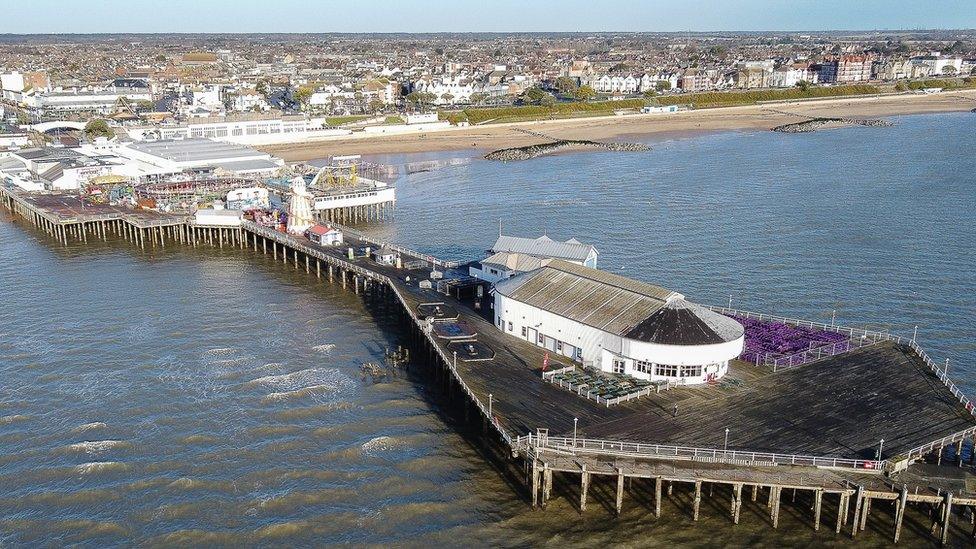
Places like Clacton often have seasonal work patterns, a shortage of big employers and are at the far end of the transport network
It is seasonal work and involves cleaning caravans in the nearby village of Weeley. When she is not doing that, she volunteers at the Sense charity shop on Clacton High Street.
Describing the moment she got her first wage packet, Ms Phillips' face lights up.
"I felt like I wanted to run away with it, just to enjoy all the money," she says.
"I wanted to get out and do a job. Since I have come to the caravans, I've [found] my own voice and I don't feel nervous any more."
People like Penny are "untapped resource", according Mike King, operations manager for Essex for the Department for Work and Pensions (DWP).
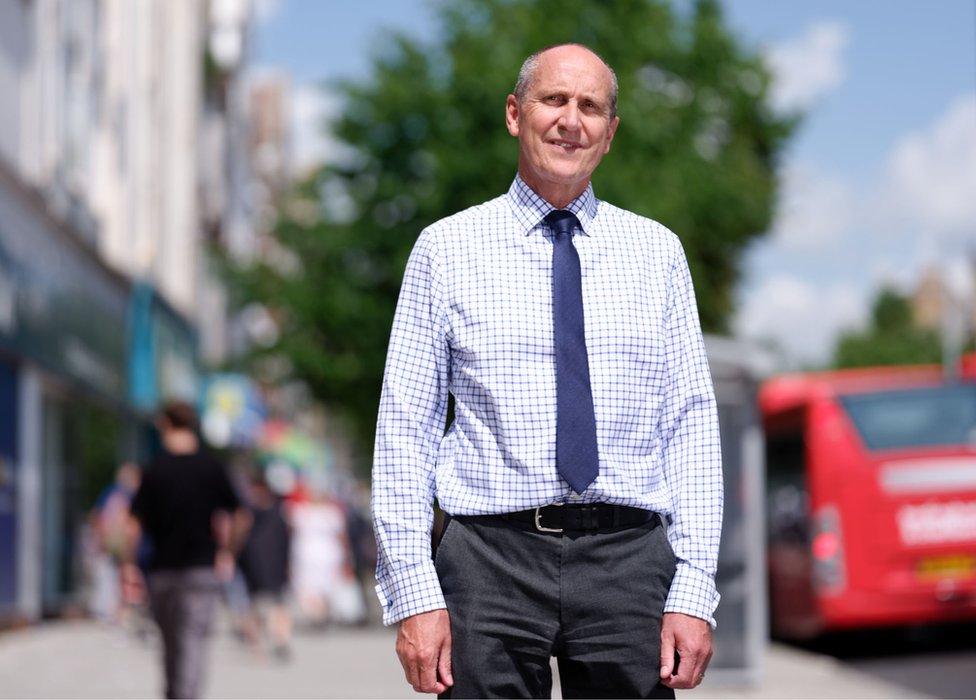
Mike King says people with seen and unseen disabilities are an "untapped resource"
He says a significant number of economically inactive people are claiming benefits but "are not actually looking for work or feel like they are capable of work".
But why is there such a high proportion of economically inactive people in Clacton particularly?
"I think most seaside towns are the same," he says.
Seasonal work patterns, a shortage of big employers and being at the far end of the transport network all play a part, Mr King says.
Giving people the right tools to get back into the workplace, he adds, is vital.
"We are working with employers and people with both physical and mental disabilities. We are not saying they will be ready for work instantly - it may be we move them closer to work through training courses and then supporting them when they are in work.
"We will support them all the way through and make sure they've got everything they need."
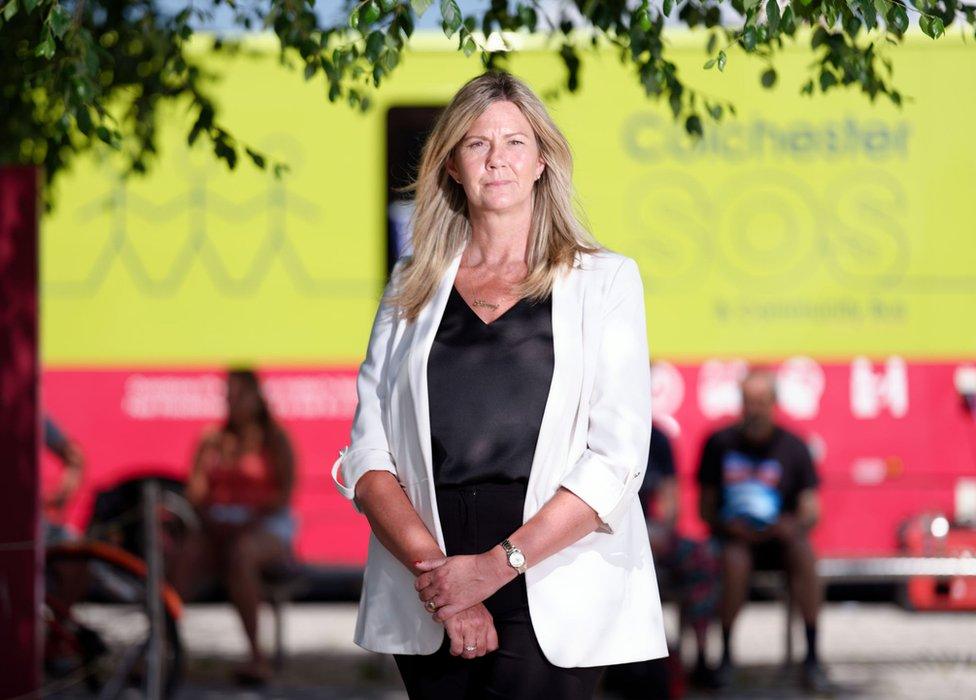
Kerrey Goosetree says many people have misconceptions that prevent them seeking work
One effort to try and encourage people back into work is a monthly community bus, organised by Kerrey Goosetree from the Suffolk and North Essex Integrated Care Board, which visits locations in Clacton and the surrounding areas.
Representatives from volunteering organisations, education institutions, health services, the DWP and others set out their stalls waiting to share their expertise and advice to interested passers-by.
She says many people they meet have misconceptions.
"For example, people might come along and say they would like to start working again but are not sure how they will survive if their benefits are stopped straight away. Having the DWP here means that misconception can be dealt with right away.
"Some people might not have the right qualifications they need. We've got training providers here.
"I think sometimes people also assume that there are not many opportunities here in Tendring. There really are."
Being in work also improves people's long-term health, she says.
"People who are in work are able to afford better food, better housing and so on, and that has an effect on their health outcomes."
Many of the people the bus sees, she says, are lacking in confidence.
For some, the best first step can be to carry out volunteering work as a precursor to paid employment.
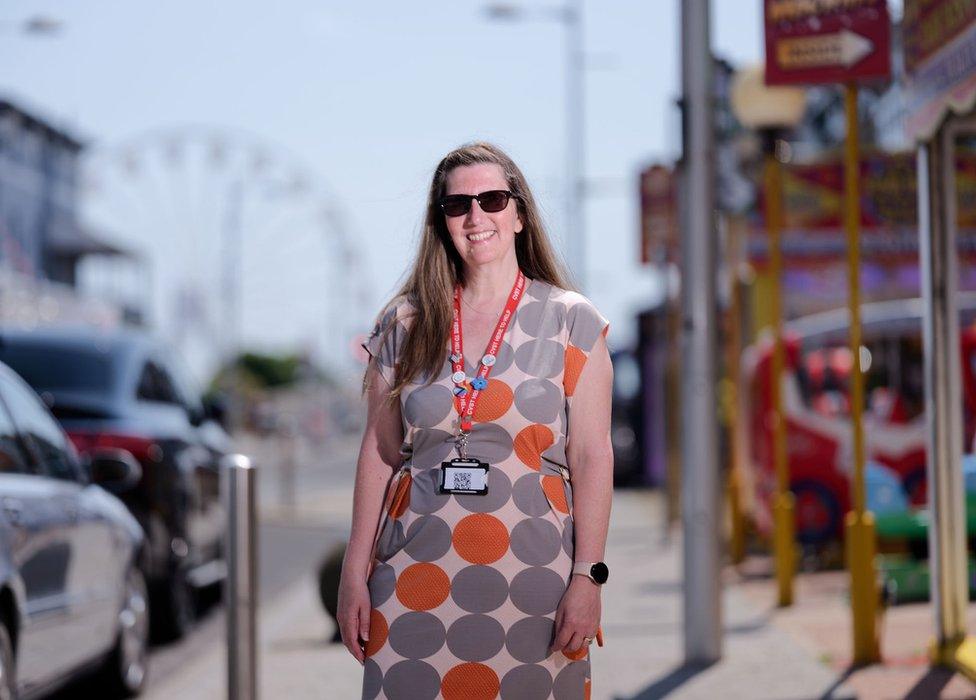
"What volunteering does for people's confidence - it is phenomenal," says Lisa Andrews
Lisa Andrews, deputy chief officer at Community Voluntary Services Tendring, says volunteering offers huge benefits to those wanting to return to work, but might not yet be ready.
"It supports them in so many ways," she says. "First, just going through the process of filling in a form and having a chat with somebody, then there's opportunity to put something exciting on their CV and thirdly you can put a reference down, an employer, who can say you turned up on time every day, you were reliable and trustworthy - it does so much for people.
"Finally, there's what volunteering does for people's confidence - it is phenomenal."
Those involved in developing Tendring's economy have high hopes that the offshore energy industry will bring thousands of new jobs to the area.
Ivan Henderson, Tendring Council's cabinet member responsible for economic development, says: "There are a lot of jobs that are going to be coming on board for young people to actually take advantage of.
"We need to make sure we work with our education partners to make sure people are geared up and have the skills and qualifications to meet those challenges.
"Levelling-up is just a word - what we need to do is make it a reality."

Find BBC News: East of England on Facebook, external, Instagram, external and Twitter, external. If you have a story suggestion email eastofenglandnews@bbc.co.uk, external
Related topics
- Published24 December 2022
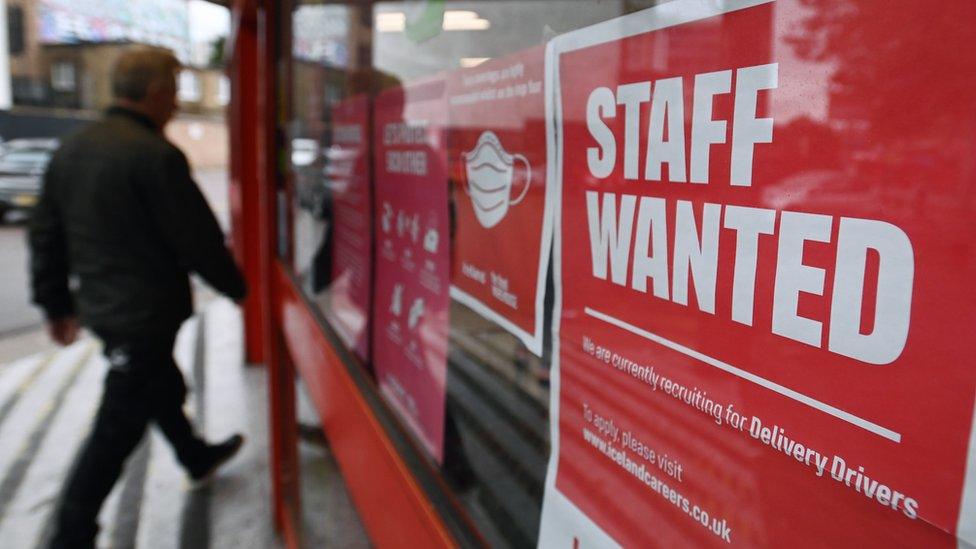
- Published11 October 2022
